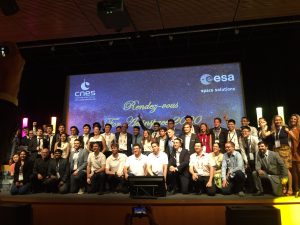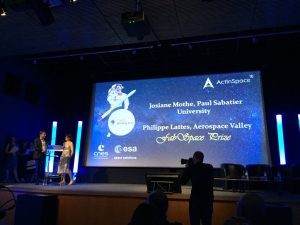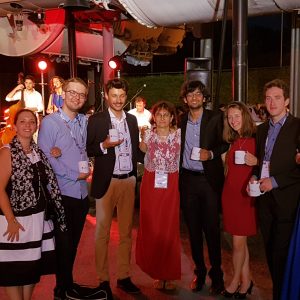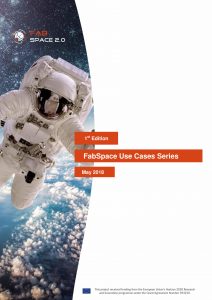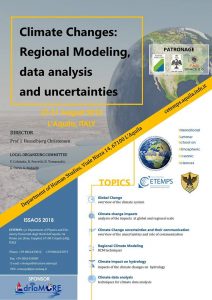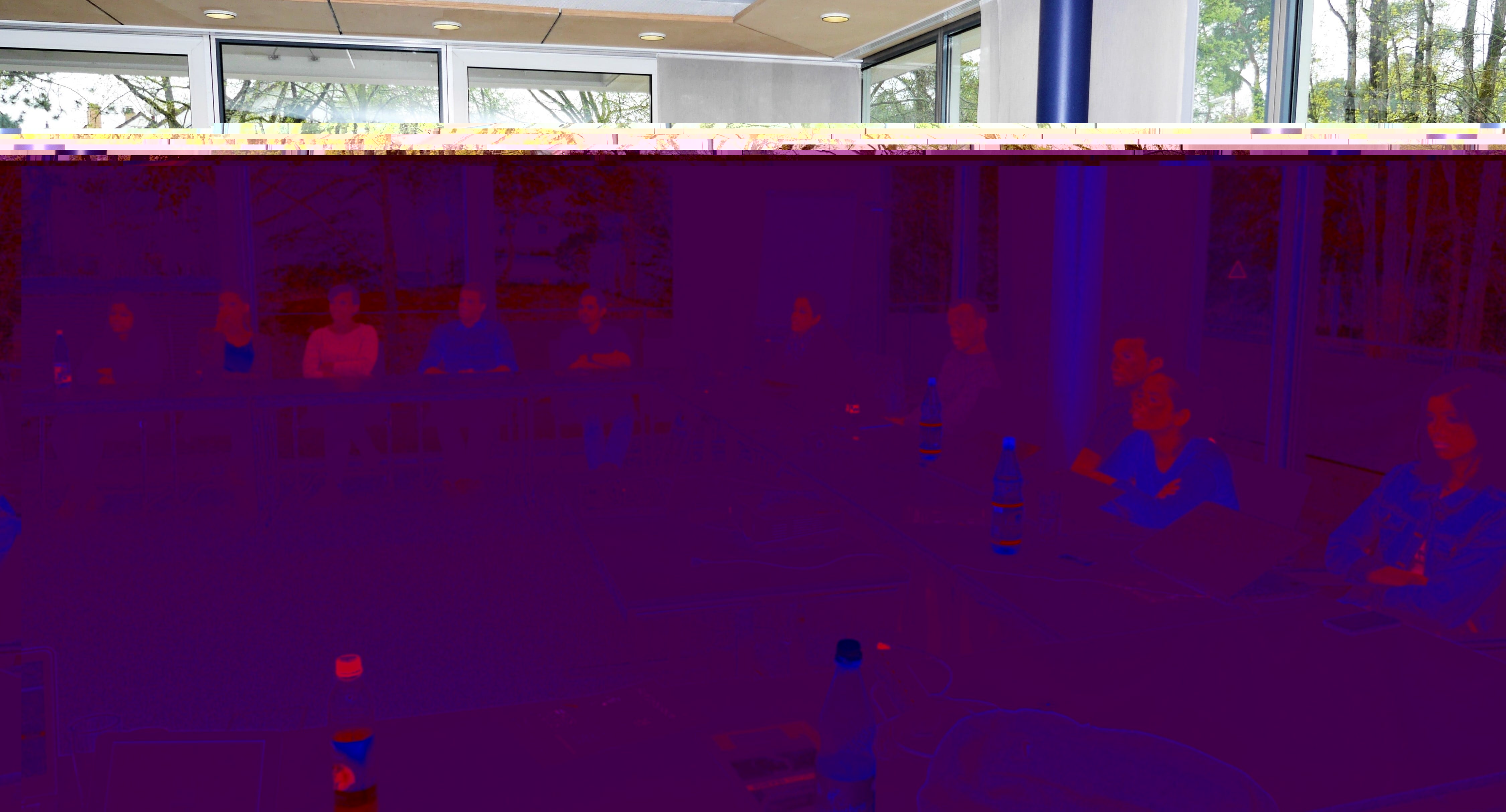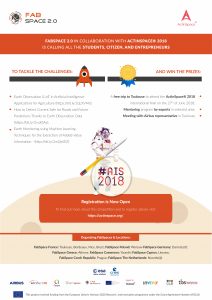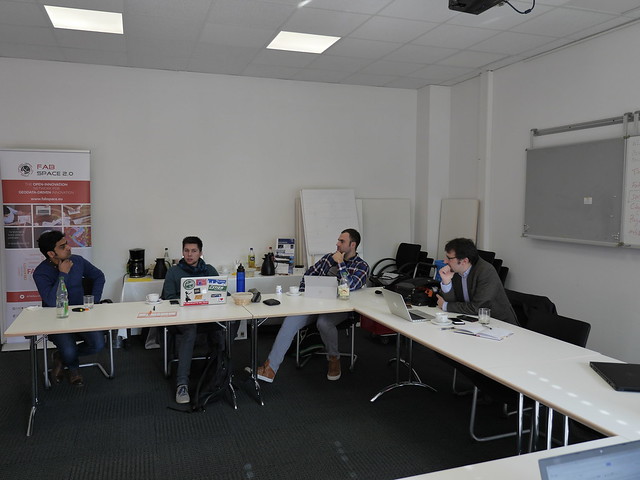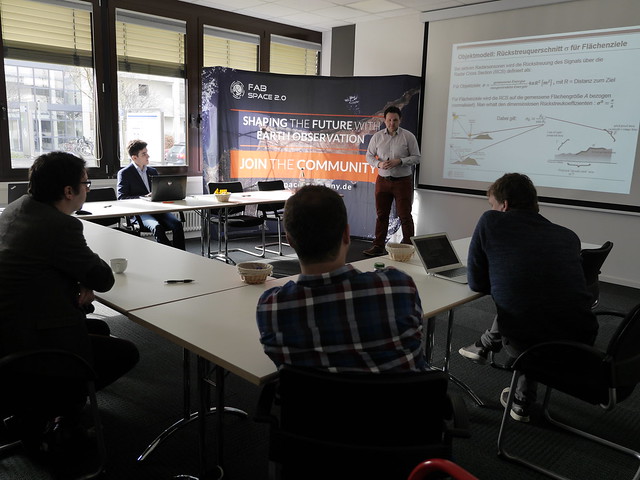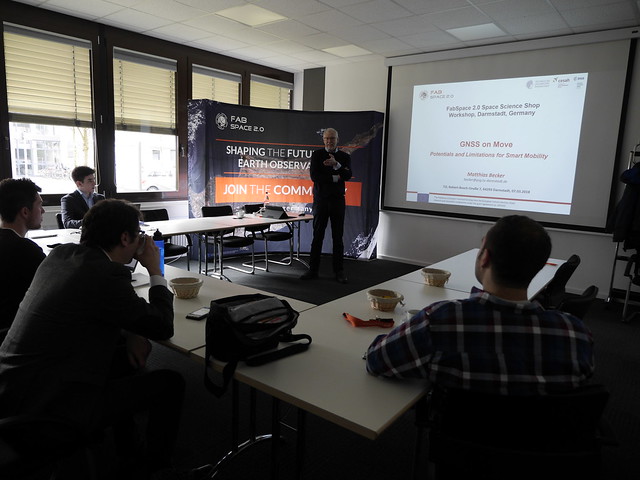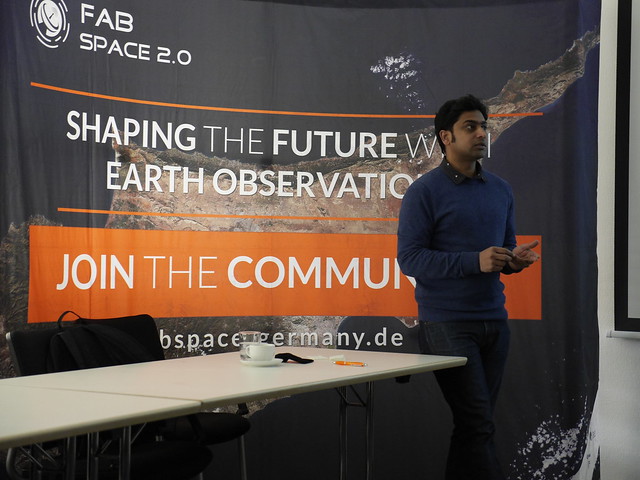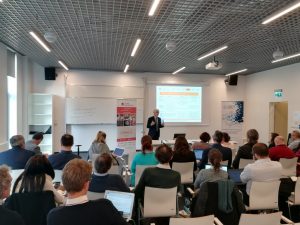FabSpace 2.0 Greece team of the Institute of Communication and Computer Systems (ICCS) of the School of Electrical and Computer Engineering (ECE) of the National Technical University of Athens (NTUA) has recently joint forces with the MaGOS team, 1st and 3rd place Award winner of the Local and International legs of ActInSpace® 2016 and the 2nd place Award winner of the COSMOTE Hackathon 2018, to integrate the MaGOS input device with Virtual Reality (VR) 3D Geographic Information Systems, a case that will open up the horizon for immersive geo-informatics and earth observation solutions.
The MaGOS team which comprised of of Mr. George Profitiliotis (an alumnus of the NTUA), Mr. Gregory Agriopoulos, Mr. Konstantinos Anastasakis, Mr. Vasilapostolos Ouranis and Ms. Elena Veli proposed during the COSMOTE Hackathon 2018 challenge a novel VR input device in the form of gloves, based on state-of-the-art wearable electromagnetic sensors, that will allow 3D designers to sculpt and model their digital creations in a VR environment in a more user-friendly and efficient manner.
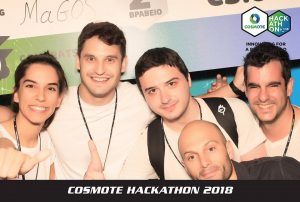
The MaGOS Team members who won the 2nd place award winner for COSMOTE Hackaton 2018 in Athens, Greece
The proposed product could also target multiple side market verticals. One such side-market case that is currently being explored jointly with the FabSpace 2.0 Greece team that comprised of Dr. Iosif Paraskevas and Mr. Haris Marantos (under the supervision of Prof. Dimitrios Soudris). Dr. Iosif Paraskevas from the ICCS, the FabSpace 2.0 Greece Manager said:
“We have learnt about the initial idea of MaGOS and we discussed with them on how this glove could give an added value to the use of EO data. Indeed, the brainstorming was spontaneous, and we agreed to work together on this. We, as part of FabSpace 2.0, are very happy to provide MaGOS with technical know-how, not only about EO data, but also regarding embedded technologies (for which ICCS is well-known). Additionally, and through FabSpace 2.0 network, it is easier for MaGOS to contact EO related companies in order to understand their needs. We hope this teaming with MaGOS to create an even more fantastic product, and we also hope to find more start-ups which currently do not use of EO data, but with huge potential if they take into account that they can use EO data in order to enhance the quality and functionality of their products; to this end this is one of the main goals of FabSpace 2.0 project”.
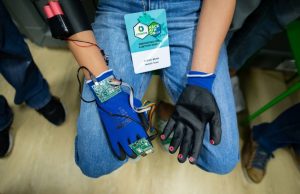
The prototype of MaGOS product, a novel VR input device in the form of gloves, based on state-of-the art wearable electromagnetic sensors
Mr. George Profitiliotis, PhD candidate at the National Technical University of Athens and Innovation Officer of the MaGOS team stated the following:
“The MaGOS product has been constantly evolving since its initial conception two years ago, during the ActInSpace® 2016 competition. Throughout its development, our team has been actively researching and exploring promising target markets to construct use cases where our product would make a substantial difference. The application of the MaGOS interface to VR 3D Geographic Information Systems for the enhancement of EO data visualization and for the ease of its manipulation is such a case. By collaborating with FabSpace 2.0, we believe that our product will soon offer a game-changing solution to the EO community”.
Together with the 2nd Place Award, the team was awarded a cash prize of €5.000 and incubation services by the Athens Centre for Enterpreneurship and Innovation, which will be utilised for the advancement of their product’s prototype. To know more about MaGOS product, please see here: http://www.qnq.gr/history.html
FabSpace 2.0 is proud to join forces with MaGOS team to enhance their product innovation. With its growing networks, FabSpace 2.0 will continuously support similar start-ups and business ideas to stimulate open innovation in Earth Observation to make our planet a better place to live in, which is the main project purpose.

